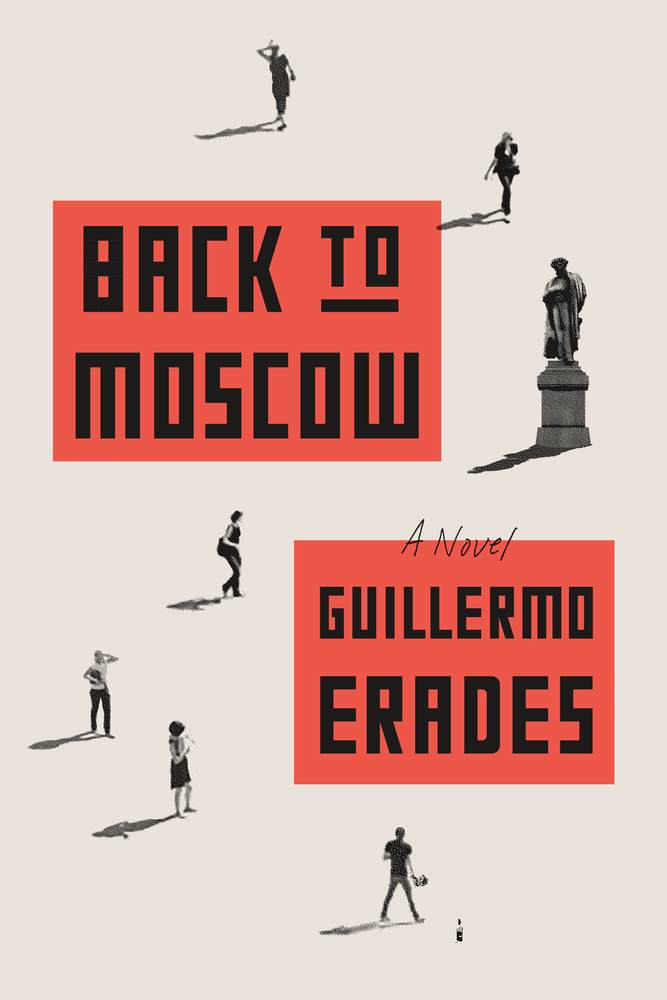You have no items in your cart. Want to get some nice things?
Go shopping
The discursive, episodic novel in which nothing much happens except for a lot of flâneuring and introspective musing is having a comeback at the moment, with books by Ben Lerner, Teju Cole and even Patrick Modiano reminding the reader that the interior is what fiction does best. Back to Moscow, the debut novel by diplomat Guillermo Erades is a notable addition to this canon.
When Erades’ narrator, Martin, finds himself in Moscow in the year 2000, researching a PhD on Women in Russian Literature (‘Pushkin, Lermotov, Gogol, Turgenev, Dostoyevsky, Chekhov – the whole bunch, really’) he decides to conduct parallel research into the actual women, or dyevs, who fill the city’s rampant ‘elitni’ nightclubs. His intention, we’re drily told, is to merge his ‘qualitative data with the quantitative data’. Unsurprisingly, Martin achieves little, expect for epic nights of vodka-drinking and many notches on his bedpost. Amid all the energetic hedonism, Martin stays in touch with his supervisor, Lyudmila Aleksandovna, who urges him to investigate not just the iconic texts, but the ‘mysterious Russian soul’ itself. He also encounters the volatile Lena, a woman who, like Chekhov’s three sisters, holds Moscow as a chimerical symbol of yearning; a promise of a better future, of all ‘that lies ahead’. Indeed, Erades’ brilliant précis of Chekhov’s play provides one of the book’s highlights. It’s only when Erades tries to make more concrete connections between his characters and immortal fictional heroines that his grip begins to slip. When Lena is revealed to be a working girl, the allusion to Sonya in Crime and Punishment feels imposed rather than earned.
For all its layers of literary reference, one of the book’s strongest suits is its snapshot of Moscow as it descends into the Putin-era free-for-all. Erades shows how the rise of the oligarchs with their ‘black humvees and whores’ supplants the equally dark Soviet past, bringing economic chaos and moral uncertainty. Here Russia is depicted as a ‘lawless jungle . . . a joke’. Headlong exploitation and corruption have taken over, while grim echoes of the Stalinist terror abound: a mall and residential complex contains ‘secret passages used by the secret services to spy on the building’s inhabitants and snatch them in the middle of the night’. Yet it’s apt that the statue of Pushkin (unveiled by Dostoyevsky in 1880) is still used as a meeting place for lovers – a desperate symbol of continuity.
While the prose is sometimes self-conscious, and careless with the occasional metaphor (a coat is described as ‘peppered with snowflakes’), Erades makes this kind of contemplative fiction look easy. We follow Martin on his vodka-soused rampage because his observations on the state of the mysterious Russian soul – as well as the state of nation – are rich, astute and playfully humorous. As the book ends, his future is uncertain. Yet unlike Chekhov’s three sisters, who believe both the ‘past and the future are better places to be’, Martin has learnt from his mistakes. Nothing much has ‘happened’ – apart from a lot of drinking, and a speedy denouement, in which he’s involved in a notorious atrocity in Moscow’s recent history – but on the inside, he’s come a long way.

About Jude Cook
Jude Cook lives in London and studied English literature at UCL. His first novel, BYRON EASY, was published by William Heinemann of Random House in February of 2013. He has written for the Guardian, the Spectator, Literary Review and the TLS. His essays and short fiction have appeared in Litro, Structo, Long Story Short and Staple magazine.




